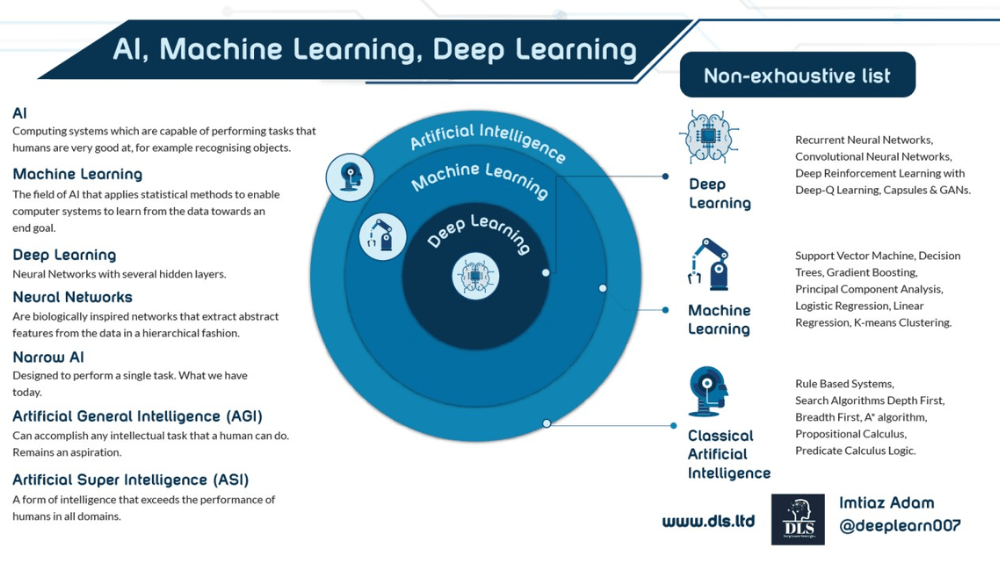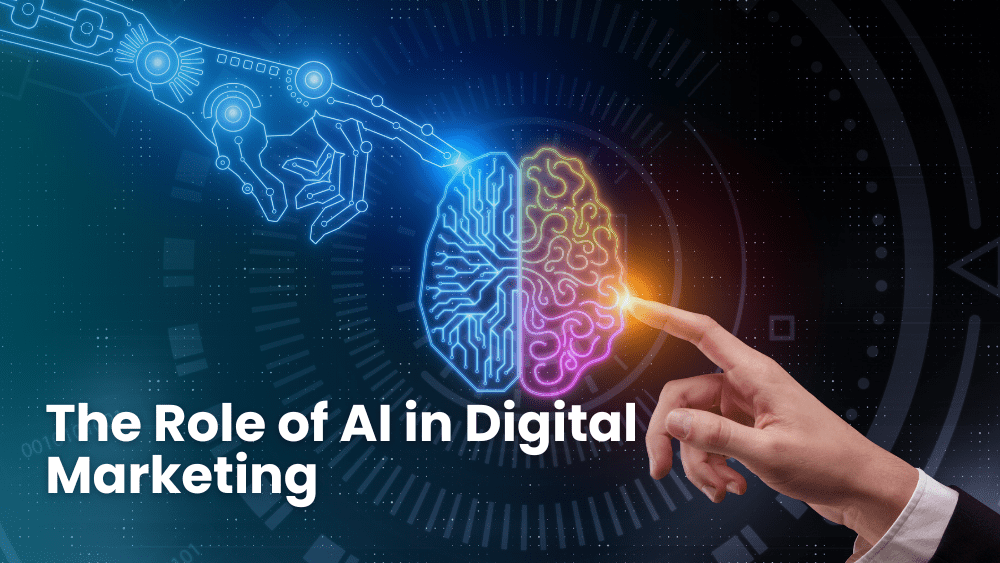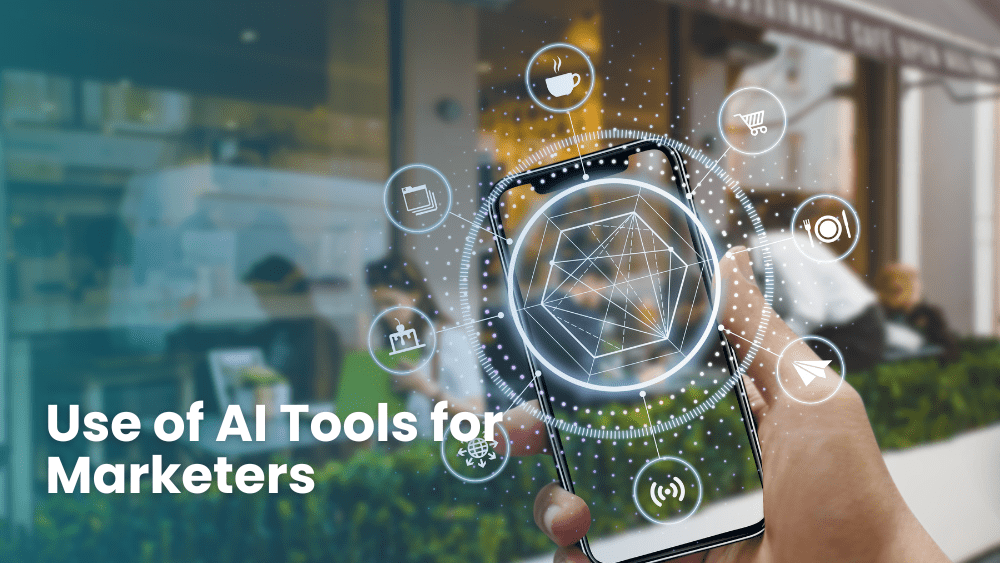Artificial Intelligence (AI) is a rapidly evolving field that has the potential to revolutionize various industries. With the advancements in technology and the availability of open-source tools and models, it has become easier than ever to get started with AI. In this blog post, we will provide a roadmap for beginners to expand their AI skill set and learn how to build with AI. Whether you have a background in machine learning or programming or not, this guide will help you navigate the world of AI and provide useful resources to get started.
Understanding the Basics of AI
What is AI and How Does it Work?
AI, at its core, is about creating intelligent machines capable of performing tasks that typically require human intelligence. This encompasses learning, reasoning, problem-solving, perception, and language understanding. Two critical subfields of AI are machine learning (ML) and deep learning, which allow computers to learn from data and make decisions with minimal human intervention.
Types of Artificial Intelligence
- Narrow or Weak AI: This is the most common type of AI in use today. Narrow AI is designed to perform specific tasks within a limited context and does not possess consciousness or genuine intelligence. Examples include virtual assistants like Apple’s Siri, chatbots, and recommendation systems used by e-commerce sites.
- General or Strong AI: Strong AI refers to a theoretical form of AI that would have the ability to understand, learn, and apply its intelligence broadly and flexibly, much like a human being. This type of AI can generalize its learning and apply it to a wide range of different tasks. Strong AI remains largely theoretical and is a goal that researchers are still working towards.
- Artificial Superintelligence: This future concept of AI surpasses human intelligence across all fields, including creativity, general wisdom, and problem-solving. Superintelligence is a subject of significant debate and speculation, with various theories on how it could be achieved and its potential impact on humanity.

Machine Learning and Deep Learning AI
Within the realm of AI, two critical subfields play a pivotal role in its current advancements:
- Machine Learning (ML): Machine Learning is a subset of AI that enables computers to learn from and make decisions based on data. ML uses algorithms to analyze data, learn from its patterns, and make predictions or decisions without being explicitly programmed for specific tasks. This technology is widely used in applications like predictive texting, email filtering, and even in more complex tasks like fraud detection.
- Deep Learning: As a subset of ML, Deep Learning involves neural networks with many layers (hence ‘deep’). These neural networks attempt to simulate the decision-making process of the human brain, albeit in a simplified form. Deep Learning is particularly effective in processing large amounts of unstructured data like images, sound, and text, making it a cornerstone in advancements like facial recognition systems, natural language processing, and autonomous vehicles.
Examples in Everyday Life
Everyday examples of AI include virtual assistants like Siri, recommendation systems on platforms like Netflix, and even spam filters in email services. In digital marketing, AI is used for personalized content creation, customer segmentation, and predictive analysis.
The Role of AI in Digital Marketing
AI technologies are transforming digital marketing by enabling more personalized, efficient, and data-driven strategies. From chatbots improving customer service to AI-driven analytics predicting consumer behavior, the applications are vast and varied.

Enhancing Personalization and Customer Engagement
One of the key advantages of AI in digital marketing is its ability to personalize content at scale. AI algorithms analyze customer data to understand preferences and behaviors, enabling marketers to tailor content, product recommendations, and marketing messages to individual users. This level of personalization not only increases customer engagement but also boosts conversion rates and customer loyalty.
AI-powered chatbots and virtual assistants are other prime examples. They interact with customers in real-time, providing personalized support and enhancing the overall customer experience. These AI tools can handle a range of tasks from answering FAQs to assisting in the purchasing process, thereby improving efficiency and customer satisfaction.
Predictive Analytics and Consumer Behavior
AI-driven analytics tools go beyond traditional data analysis. They can predict future consumer behaviors by analyzing past interactions and trends. This predictive capability enables marketers to anticipate market changes, identify new opportunities, and create more targeted marketing strategies.
Tools like Google Analytics, for instance, use AI to offer deep insights into user behavior on websites and applications. These insights help in optimizing user experience and targeting specific audience segments more effectively.

Use of AI Tools for Marketers
In the arsenal of digital marketers, AI tools are becoming indispensable for enhancing efficiency and effectiveness.
Advanced-Data Analysis and Campaign Optimization
Google Analytics utilizes AI to perform advanced data analysis, providing insights into user behavior, traffic patterns, and conversion rates. This information is vital for understanding the effectiveness of marketing strategies and for making data-driven decisions to optimize them.
Platforms like Marketo leverage AI to automate and optimize marketing campaigns. They use machine learning algorithms to segment audiences, personalize messages, and determine the best channels and times for campaign delivery, ensuring higher engagement and ROI.
Content Creation and SEO
AI is also transforming content creation and search engine optimization (SEO). Tools like GPT-4 can generate creative and high-quality content, aiding in blog post creation, email marketing, and even social media posts. For SEO, AI tools can analyze search trends, suggest relevant keywords, and help in creating SEO-optimized content that ranks higher in search engine results.
Real-Time Bidding and Ad Optimization
AI technologies play a significant role in programmatic advertising, particularly in real-time bidding (RTB). By analyzing vast amounts of data in real-time, AI algorithms can make instant decisions on which ads to buy and how much to bid, maximizing the effectiveness of advertising budgets.
In conclusion, AI’s role in digital marketing is multifaceted and growing rapidly. From enhancing customer experiences to optimizing campaigns and improving decision-making, AI technologies are essential for modern marketers looking to innovate and succeed in the digital landscape.

The Roadmap to Learning AI The Most Effective Way
1. Learning the Basics of Programming with Python
Python is foundational in AI development. Beginners should start with Python, exploring essential libraries such as Pandas and Matplotlib. Tools like Visual Studio Code or Jupyter Notebook are ideal for Python coding.
2. Mastering Version Control with Git
Version control, facilitated by Git, is crucial in AI project management. Understanding Git and GitHub is essential for collaborative development and workflow management. Beginners can start with GitHub Desktop before moving to command-line operations.
3. The Power of APIs in AI Integration
APIs are central in AI, enabling integration of AI models into custom applications. Learning API usage, such as integrating OpenAI’s GPT models, is crucial for advanced AI development.
4. Theoretical Foundations of AI
A strong grasp of machine learning, neural networks, and deep learning is essential. Special focus on the Transformer architecture is recommended due to its significance in natural language processing.
5. Hands-on AI Projects
Practical experience is invaluable. Start with basic projects like building a neural network in Python and progress to more complex applications. Documenting and sharing these projects enhances understanding and contributes to the AI community.
6. Specialization and Building Mental Models in AI
As proficiency grows, consider specializing in areas like AI security or ethics. Engaging with AI news and the community through forums and social media can deepen understanding and keep you informed of the latest trends.
Tools like Langchain, LM Studio, FlowWiseAI come in handy when learning AI. and there are tons of No-Code Tools you can explore to master your craft.
Online Courses and Resources
Websites like Coursera, Simpli Learn and edX offer courses on AI and machine learning. For practical tutorials, Kaggle is an excellent platform for hands-on learning.
Google Machine Learning Course
SimpliLearn Artificial Intelligence Engineer
Advanced AI Concepts for Deeper Understanding
Deep Learning and Neural Networks
Understanding deep learning and neural networks is crucial for grasping how AI models process large amounts of data to make predictions or recognize patterns.
Real-world Applications
In digital marketing, AI-driven content generation tools like GPT-4 are revolutionizing copywriting and content creation.
AI for Startups and Marketers
Transforming Business Strategies with AI Analytics
AI-driven analytics are at the forefront of this transformation. These tools go beyond traditional data analysis, enabling businesses to delve deeper into customer behavior, market trends, and operational efficiency. By leveraging machine learning and predictive analytics, startups can foresee market shifts, understand customer needs better, and make informed decisions that drive growth and improve return on investment (ROI).
For instance, AI can help in identifying which marketing channels are yielding the best results or which customer segments are most responsive to certain types of messaging. This level of insight helps businesses to allocate resources more effectively and tailor their strategies for maximum impact.
Case Studies: Real-World Applications of AI
- Netflix: A prime example of AI in action is Netflix’s use of machine learning for personalized content recommendations. By analyzing viewing habits, search history, and preferences, Netflix’s AI algorithms suggest shows and movies, significantly enhancing the user experience and increasing viewer engagement and retention rates.
- Amazon: Another example is Amazon, which uses AI for everything from personalized product recommendations to optimizing logistics and delivery routes. This not only improves customer satisfaction but also enhances operational efficiency.
AI in Customer Engagement and Retention
AI technologies are reshaping how businesses interact with and retain customers.
Enhancing Customer Interactions with AI Chatbots
AI-powered chatbots are revolutionizing customer service by providing instant, personalized assistance. These chatbots can handle a multitude of queries, from product inquiries to support requests, without human intervention. This not only reduces response times but also ensures customers receive help 24/7, enhancing their overall experience and satisfaction.
For startups and small businesses, these AI solutions are particularly valuable as they offer a cost-effective way to deliver high-quality customer service without the need for a large support team.
Personalized Marketing for Deeper Customer Connections
Personalized marketing, powered by AI, takes customer engagement to a new level. By analyzing customer data, AI tools can create highly targeted marketing messages and offers. This personalization makes customers feel understood and valued, leading to stronger brand loyalty and higher conversion rates.
For example, e-commerce platforms use AI to show users products they are more likely to be interested in based on their browsing and purchase history, thereby increasing the likelihood of a purchase.
Building Customer Loyalty through Predictive Analytics
AI’s predictive analytics can foresee customer needs and behavior, enabling businesses to proactively address potential issues and offer solutions. This foresight can help in reducing churn and building a loyal customer base.
Key Takeaways
This section will recap the essential points discussed, emphasizing how AI can be a valuable asset for startups, marketers, and students.
- AI is a rapidly evolving field with the potential to create a significant impact in various industries.
- Learning the fundamentals of AI and how to build with AI is essential for professionals in the tech field.
- Python is a widely used programming language for AI, and familiarity with Python is crucial.
- Git version control and understanding APIs are important skills to develop in your AI journey.
- Developing mental models around AI and specializing in a specific area can further enhance your AI expertise.
FAQ
Q: Why is learning AI important?
A: Learning AI is important because it has the potential to create a significant impact in various industries. AI can automate tasks, generate insights from data, and solve complex problems. By learning AI, professionals in the tech field can stay ahead of the curve and be in a position to build innovative solutions using AI technologies.
Q: What programming language is essential for AI?
A: Python is the most widely used programming language for AI. It has a rich ecosystem of libraries and frameworks that make it easy to implement AI algorithms and models. Familiarity with Python is crucial for anyone looking to work in the field of AI.
Q: How can I stay updated with AI developments?
A: To stay updated with AI developments, follow newsletters like the batch newsletter by Andrew Ng and explore platforms like Medium for AI-related articles. Additionally, read books on AI to gain a well-rounded understanding of the field. Engage with the AI community through social media and attend conferences and webinars to stay connected with the latest advancements.
Conclusion
The journey of learning AI can be challenging but incredibly rewarding. For startups and marketers, the integration of AI offers a competitive edge in today’s digital landscape. As technology evolves, staying informed and adaptable is key to success.



Comments are closed.